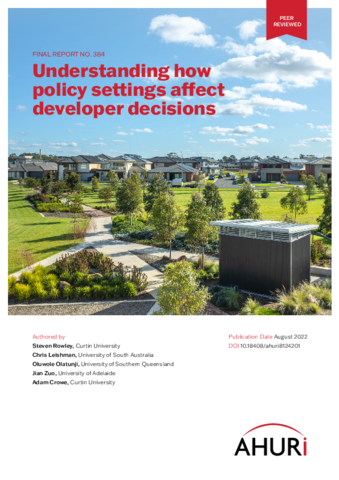This research examined how policy settings and new construction technologies and processes affect developer decisions to provide private sector housing supply and might improve affordability. The complexity of the development process, the structure of development organisations, the variety of products delivered, and land ownership issues mean the development decision-making process varies by organisation and site by site. Therefore, it is too simplistic to assume policy settings will have exactly the same impact on each and every developer and on each and every site.
Development projects can take many years and generally developers estimate what their products would sell for in the current market using comparable evidence to determine potential sales prices and then apply a revenue escalation figure to try and forecast the actual sales price on project completion. This is fraught with difficulty due to price fluctuations even in the short term, let alone on development projects which may span 10 years. Developers usually adopt a conservative approach to price escalation to avoid overestimating revenues and delivering inflated return projections.
The second biggest risk factor identified by interviewees was the planning process. Planning policy settings determine what a developer can do on a site. This means that the political stance of the local planning authority can actually deter a developer from operating across the whole of an LGA. The potential for timelines to blow out or last-minute changes forced upon developers increases risks and can reduce return, leading to developers avoiding certain areas.
Modelling shows a more efficient development approval process, including planning, infrastructure and environmental approvals, which reduces timeframes has the potential to provide a major boost to project profitability.


